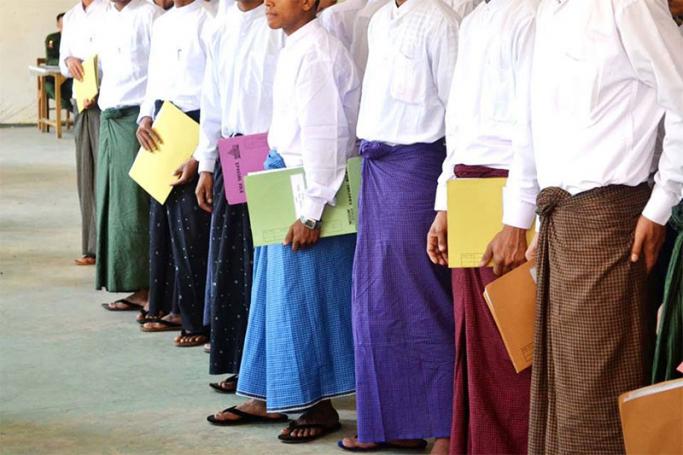The Tatmadaw today released 55 children and young people as a result of coordinated efforts with the United Nations to implement the 2012 Joint Action Plan to end and prevent the use and recruitment of children by the army, the UN Body said in a statement on 9 September.
According to the statement, this is the first discharge to take place since the new government took power in April 2016, and a week after the 21st Century Panglong Union Peace Conference, which is a strong signal on the importance of protecting children in the context of armed conflict and within the peace process.
Since the signature of the Joint Action Plan in 2012, 800 children and young people have been released by the army. In addition, a further 13 young people recruited as children but already adults by 2012, were also released today.
It continues, the children and young people discharged will benefit from social-economic reintegration programmes to help them re-start their lives with their families, with an emphasis on access to education and vocational training, and income generating activities.
“We welcome this discharge and the continued commitment of the Myanmar Government to implementing the Joint Action Plan, while stressing the need for the Government to continue making every effort to end the recruitment and use of children in its armed forces”, said Renata Dessallien, the United Nations Resident and Humanitarian Coordinator in Myanmar, and co-chair of the UN Country Task Force on Monitoring and Reporting (CTFMR) on Grave Violations against Children.
Since the signature of the Joint Action Plan, important actions have been taken, namely the centralisation of the recruitment, and the signature one year ago of the Optional Protocol to the Convention on the Rights of Child on the involvement of children in armed conflict, which still needs to be ratified.
“We call on the Government to accelerate essential remaining steps, particularly by clearly banning use and recruitment of children in the soon to be adopted national Child Law, further reinforcing age assessment procedures within the military recruitment process, and including the prevention of violations against children in the military curriculum”, said Bertrand Bainvel, UNICEF Representative to Myanmar and co-chair of the CTFMR.
In addition to the Tatmadaw, seven non-state armed groups in Myanmar, are named on the UN Secretary-General’s list of parties to conflict who recruit and use children. The UN has started dialogue with several of these to discuss the possibility of signing action plans to end and prevent the recruitment and use of children under 18.
Whilst the peace process moves forward, commitment to stop recruitment and use of children should be immediate, the statement said.
You are viewing the old site.
Please update your bookmark to https://eng.mizzima.com.
Mizzima Weekly Magazine Issue...
14 December 2023
Spring Revolution Daily News f...
13 December 2023
New UK Burma sanctions welcome...
13 December 2023
Spring Revolution Daily News f...
12 December 2023
Spring Revolution Daily News f...
11 December 2023
Spring Revolution Daily News f...
08 December 2023
Spring Revolution Daily News f...
07 December 2023
Diaspora journalists increasin...
07 December 2023
Arrests over China's New York 'police station'












